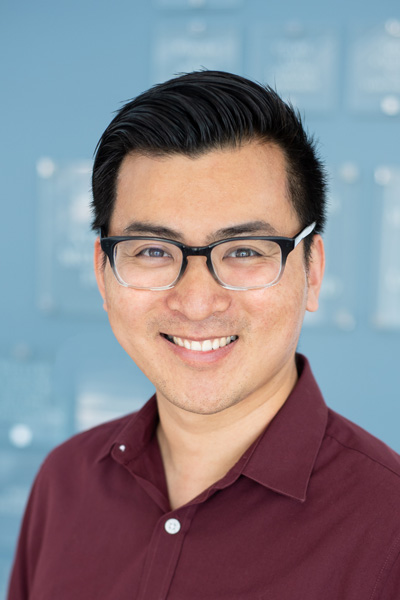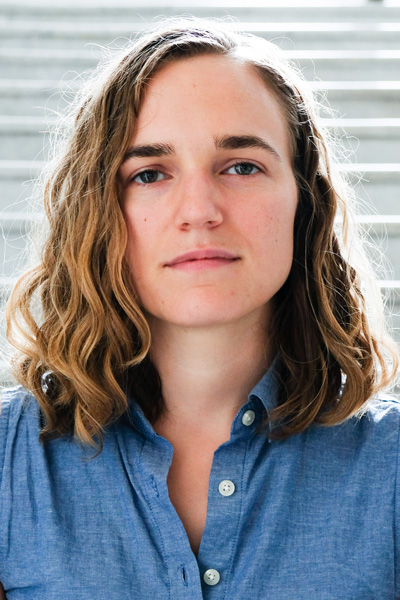Created for and by postdocs, the Postdoc Leadership Fellows Program (PDLF) is a new initiative that focuses on activities and resource sharing that benefit incoming postdocs to the UCSF community. At its core, Postdoc Leadership fellows – trained in inclusive leadership and mentoring, community-building, and UCSF’s PRIDE values – create, direct, and facilitate the sharing of resources among other postdocs in their local work communities.
Continue reading to learn more about the current fellows!
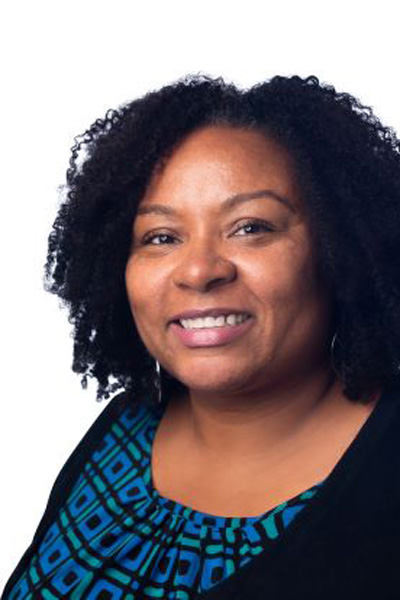
April Bell, PhD, is a Postdoctoral Scholar at the Preterm Birth Initiative at UCSF. She obtained her PhD in Epidemiology from the Indiana University School of Public Health at Bloomington. Dr. Bell's research is focused on decreasing reproductive health inequities among women and youth by addressing the impacts of societal and structural biases on adverse birth outcomes, sexually transmitted infections, HIV acquisition, abortion access, and unintended pregnancy. Having worked extensively in both the US and across sub-Saharan Africa, she is interested in using both quantitative and qualitative methodologies, including digital storytelling, to bridge the expanse between US and African settings.
Areas of expertise: Reproductive, sexual, maternal, and adolescent health; reproductive justice; health equity; racism; historically excluded groups; global health; implementation science; digital storytelling; youth participatory research methods; BIPOC postdocs
Miqdad Dhariwala MSc, PhD, was born and grew up in the city of Pune in India. An avid enthusiast of the outdoors, he spent most of his childhood playing individual and team sports for his school and college. He did his undergraduate and master’s degrees in microbiology in India while also securing the prestigious national CSIR certification for lecturing in the sciences. He later moved to Missouri, USA, where he earned his PhD studying immune responses to highly infectious diseases. To further pursue his interests in microbiology and immunology he then transitioned to a postdoctoral position in Dr. Tiffany Scharschmidt’s lab at UCSF. He is focused on studying the role of the microbiome in the development of the neonatal immune system in barrier tissues. He is also passionate about education and is routinely found mentoring young scientists. Away from the lab Miqdad spends his time hiking, learning to cook different cuisines, educating himself about world history and supporting the Golden State Warriors!
Areas of expertise: K99, postdocs fellowships, microbiology, immunology, neonatal immunity, microbiome, mentoring, UCSF Housing, core facilities, transportation, international scholar, Bay Area foods
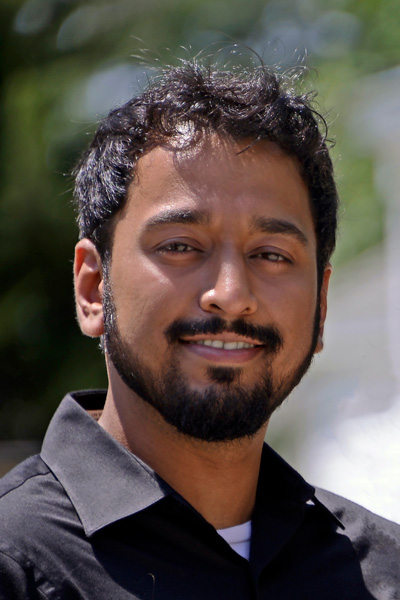
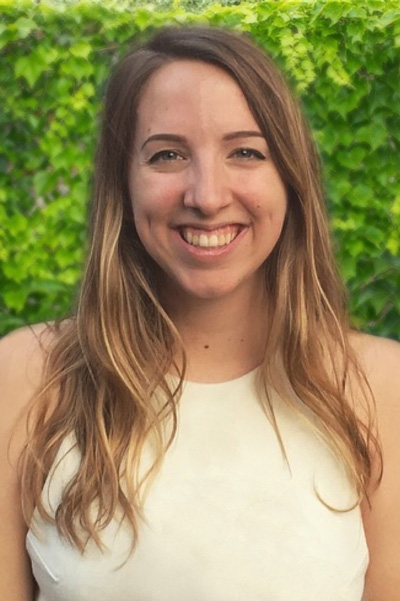
Molly Hodul, PhD, was raised in Oakland, California. She received in undergraduate degree in Psychology and Neuroscience from UCLA and her graduate degree in Neuroscience from Tufts University in Boston, Massachusetts. Under the guidance of Prof. Peter Juo, she identified novel mechanisms for the regulation of the recycling and degradation of neuronal synaptic receptors in the model organism C. elegans. As a UCSF postdoctoral researcher in the lab of Prof. Aimee Kao, she is continuing her research on protein homeostasis and degradation in C. elegans. Her project focuses on the interaction between progranulin and prosaposin and their role in lysosomal function and neurodegeneration. Outside of working at the bench, Dr. Hodul enjoys creative hobbies, baking, reading, and her collection of house plants.
Areas of expertise: molecular biology, neuroscience, lysosomal biology, genetics, C. elegans, mentoring students, women in STEM
Oleta Johnson, PhD, is a native of Charleston, South Carolina, where she grew up training for a career in modern and contemporary dance. By her senior year of high school, she discovered her love of chemistry, prompting her to pursue a bachelor’s degree in biochemistry at Florida A & M University. She continued her studies with a PhD in chemical biology from the University of Michigan. During her graduate training in the lab of Prof. Amanda Garner, she adapted her fascination with movement to develop tools for studying intrinsically disordered proteins in the context of protein synthesis and cancer. As a UCSF postdoctoral researcher in the lab of Prof. Jason Gestwicki, Dr. Johnson is using her experience studying dynamic protein systems to develop tools to both understand and regulate protein homeostasis in cells, with a focus on the molecular chaperone protein Hsp70 and its role in polyglutamine expansion diseases. When not in the lab, Dr. Johnson enjoys cooking, reading, kickboxing, dancing (of course) and hanging out with her housemates.
Areas of expertise: chemical biology, protein engineering, protein NMR, biochemistry, postdoc community building, mission bay, food, east bay, BIPOC postdocs
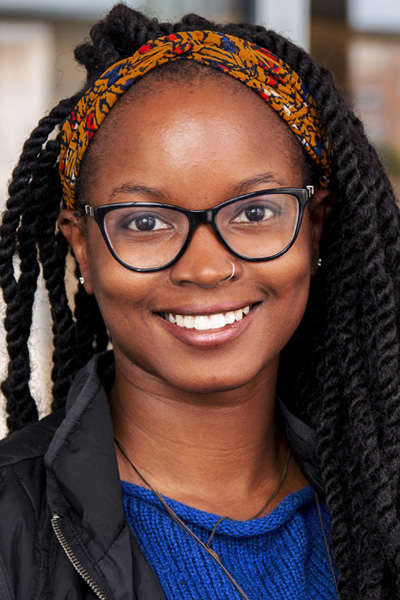
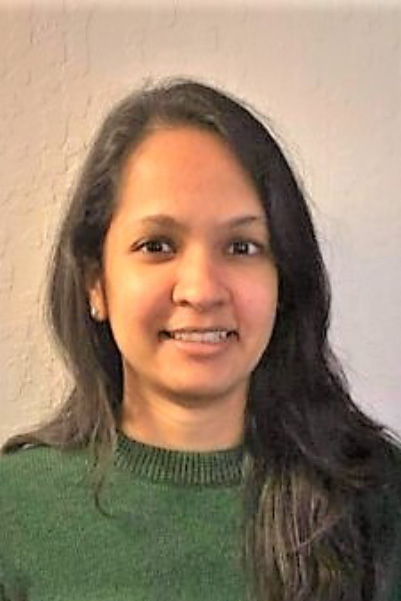
Neha Pincha, PhD is a postdoctoral scholar in the lab of Prof. Ophir Klein at UCSF. She is trying to figure out the mechanical forces underlying the formation of the signaling center essential for rodent tooth development. On the side she is also studying vole teeth and trying to answer the long standing question of how stem cells evolved in certain tissues. Before moving to the USA, she completed a Master's in Biotechnology in Kolkata, India and then went on to finish her PhD at inStem, National Center for Biological Sciences, India under the guidance of Prof. Colin Jamora. During her grad school years, she deciphered some of the mechanisms that lead to the development of skin fibrosis. Outside the lab she is a regular at the USCF Improv club, loves reading fiction, playing board games and exploring the bay area food scene and is always (?) trying to motivate herself to exercise.
Areas of expertise: cell biology, developmental biology, stem cells, mentoring, event management and planning, career exploration and associated networking, business concepts in life sciences, international scholar issues, communication
Isobel Routledge, PhD is a postdoctoral researcher at UCSF's Experimental and Population-based Pathogen Investigation Center (EPPICenter) based at the San Francisco General Hospital. Her research focuses on developing methods to use genomic data to better measure and control malaria transmission, however over the past year and a half she has focused on developing and analyzing epidemiological studies exploring health inequities in SARS-CoV-2 transmission within San Francisco. Her PhD was based at Imperial College London in the UK and focused on developing new methods to measure malaria transmission in settings where established measures don't work well. During grad school she also received funding to pilot a series of creative movement workshops working collaboratively with women living with HIV to create a performance centered on messages they wanted to convey to researchers, policymakers and the general public, aiming to combat stigma, increase visibility and highlight the lack of funding and support given to women living with HIV. Outside of work, Isobel enjoys practicing Capoeira, film photography and seeing her roommate's band perform around the city.
Areas of expertise: International scholar issues, malaria epidemiology, infectious disease dynamics, public health, mechanistic modelling, science communication/public engagement, mentoring and pastoral support
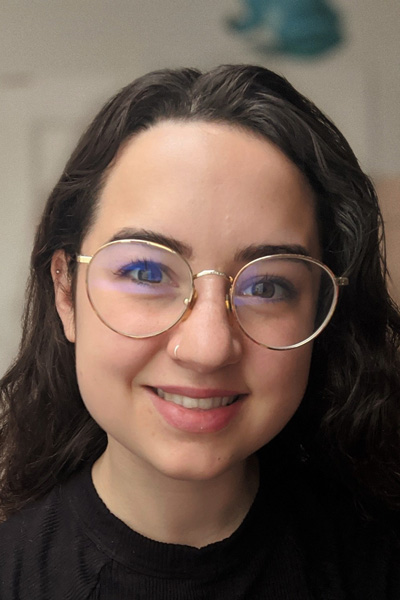

Lin Song, MMed, PhD, is a postdoctoral scholar in UCSF’s Helen Diller cancer center. Since 2019, her research has focused on translational medicine and lung cancer, and she devotes herself to advocate for postdoctoral scholars in many aspects by serving as co-chair for the postdoctoral scholar association and as member of the chancellor’s council. She is concurrently serving on various other councils and committees, and is a scientific reviewer. Previously, she obtained a PhD in biochemistry from the medical faculty of the University of Cologne, Germany (2014 -2018). Before that, she got a master’s degree in medicine in the field of clinical pathology and experimental oncology (2011-2014) and a bachelor’s in clinical laboratory science (2007-2011) in China. In addition to research and medical interests, she has been actively engaged in supporting global sustainable development and promoting international academic exchange by volunteering in the United Nations. She served as a leader of an international academic association and as an ambassador of a research funding agency. She loves hiking, photography, and delicious cuisine.
Areas of expertise: cancer genomics, mouse models, cancer biology, laboratory medicine, pathology, postdoctoral community, campus culture, climate change, public health
Postdoctoral Leadership Fellow Alumni

